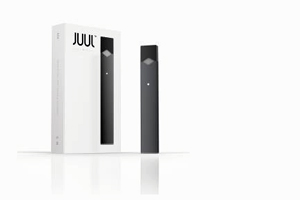New York Attorney General Letitia James today announced a lawsuit against the electronic cigarette company JUUL Labs, Inc. (JUUL) for deceptive and misleading marketing of its e-cigarettes, which contributed to the ongoing youth vaping epidemic in New York State.
The lawsuit, filed in New York County Supreme Court, alleges that JUUL took a page from “Big Tobacco’s playbook by engaging in deceptive business practices when marketing and advertising its products, and illegally sold its products to minors through its website and in third-party retail stores throughout the state, causing large numbers of New York youth to become addicted to nicotine,” according to a press release.
The suit also alleges that JUUL’s advertising campaign misled consumers by failing to warn that they contained nicotine, and by misrepresenting its products as a safer alternative to traditional cigarettes.
“There can be no doubt that JUUL’s aggressive advertising has significantly contributed to the public health crisis that has left youth in New York and across the country addicted to its products,” said James. “By glamorizing vaping, while at the same time downplaying the nicotine found in vaping products, JUUL is putting countless New Yorkers at risk. I am prepared to use every legal tool in our arsenal to protect the health and safety of our youth.”
The lawsuit alleges that JUUL’s conduct violates General Business Law §§ 349 and 350, which prohibit deceptive acts and practices and false advertising; Common Law Public Nuisance, which prohibits substantial and unreasonable interference with the public health; and Executive Law § 63(12), which prohibits repeated and persistent fraud and illegality, based on violations of the New York Public Health Law prohibiting underage sales of tobacco products to minors.
Additionally, JUUL allegedly violated the Federal Trade Commission Act §5 prohibiting unfair business practices that substantially injure consumers, and the Food, Drug & Cosmetic Act 21 U.S.C. § 387k, prohibiting the introduction into interstate commerce of any modified risk tobacco product without an order from the Secretary of Health & Human Services.
As of November 13, 2019, New York State law was changed, making it illegal to sell nicotine products, including e-cigarettes, to consumers who are under 21-year-old. Previously, the law applied to consumers younger than age 18. Despite this prohibition, JUUL violated the law by selling its products to New Yorkers under the age of 18.

